Titanium-dioxide – Capro-PA6 27-08-2022 - Arhive
Titanium-dioxide – Capro-PA6
-Switzerland’s Hypersonic Plane That Will Use Hydrogen to Travel the Earth in 90 Minutes
Have you ever imagined being able to go to the other side of the world in the time it takes to play a football match? If we asked this question to the Swiss company Destinus, its answer would be yes, since They have invested more than 25.5 million euros in continuing their Jungfrau project.
It is an autonomous hypersonic aircraft that, they estimate, will have the ability to reach speeds of 15 Mach. This vehicle uses hydrogen as fuelso it could become a sustainable and faster alternative to current flights.
The Jungfrau is halfway between an airplane and a rocket, according to the company, since it will perform operations similar to those of an airplane, but You will be able to ascend and accelerate until you exceed the speed of sound. Titanium-dioxide – Capro-PA6
The prototype they plan to build will reach heights of up to 60 kilometers away from Earth. This will allow you to move cargo between continents in less than two hours. In fact, Destinus charts suggest that Jungfrau will be able to reach supersonic speed in 15 minutes and reach full speed in cruise mode in 20 minutes.
Destinus reports that his power will be so great that he will need to start braking 40 minutes before landing. In addition, it details that Jungfrau can travel almost 800 kilometers in 40 minutes at its supersonic speed.
The Jungfrau prototypes
“Late next year, we plan to fly the next iteration of the prototype with both the ATR engine and a second hydrogen rocket engine – it will be the configuration for our commercial vehicles,” said Mikhail Kokorich, CEO of Destinus.
Before we start planning the prototype that Kokorich is talking about, the company had already managed to design another small-scale prototype. His idea is to create a life-size one by the end of 2022 that precedes next year’s.
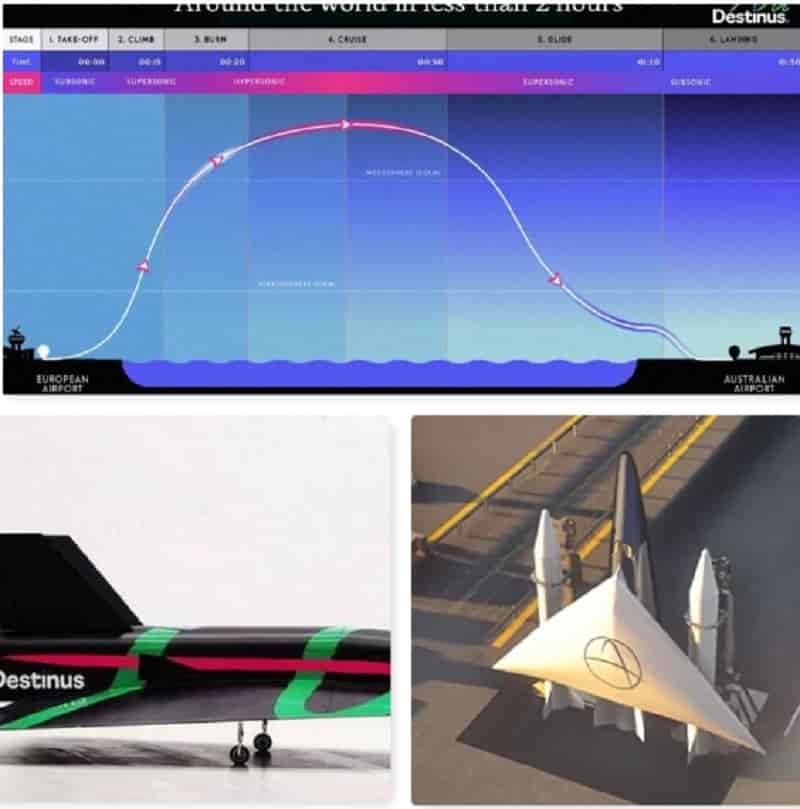
Strategic partnership to reduce the carbon intensity of renewable diesel and sustainable aviation fuel production
Collaboration to develop innovative, cost-effective chemical processing solutions to turn mixed plastic waste into valuable materials
BASF and Sulzer Chemtech (GTC Technology) have signed a Memorandum of Understanding (MoU) with the goal of advancing technologies for renewable fuels and chemically recycled plastics that will further expand the partners’ portfolio of sustainable solutions. The companies agreed to enter a strategic partnership to reduce the carbon intensity of renewable diesel and aviation fuel. They will also drive the development of innovative, cost-effective chemical processing solutions to improve the conversion of plastic waste into new plastics. The collaboration combines complementary areas of expertise, integrating Sulzer Chemtech’s capabilities in licensed processing technologies and mass transfer equipment with BASF’s cutting-edge high-performance adsorbents and catalysts. Titanium-dioxide – Capro-PA6
Sulzer Chemtech, an established licensor for process technologies for renewable fuels and chemical recycling of plastics, is leading efforts to harness resources that can help global producers achieve their net-zero ambitions. BASF Process Catalysts is driving multiple initiatives aimed at turning plastic waste into a secondary raw material, for example with its newly developed PuriCycle® portfolio, as well as providing adsorbent and catalytic materials to produce clean and renewable fuels.
“Global plastic pollution and mobility are challenges that we can help to solve by joining forces with partners”, said Detlef Ruff, Senior Vice President, Process Catalysts at BASF. “This is why we at BASF are involved in key strategic collaborations aimed at protecting our planet’s resources and transforming the way we do business. We are excited to work with Sulzer Chemtech and use our combined strengths to address plastic pollution and drive the adoption of more sustainable fuels.”
Torsten Wintergerste, President at Sulzer Chemtech, concludes: “Our process technology development team is continuously looking at new ways to support more sustainable, circular practices.
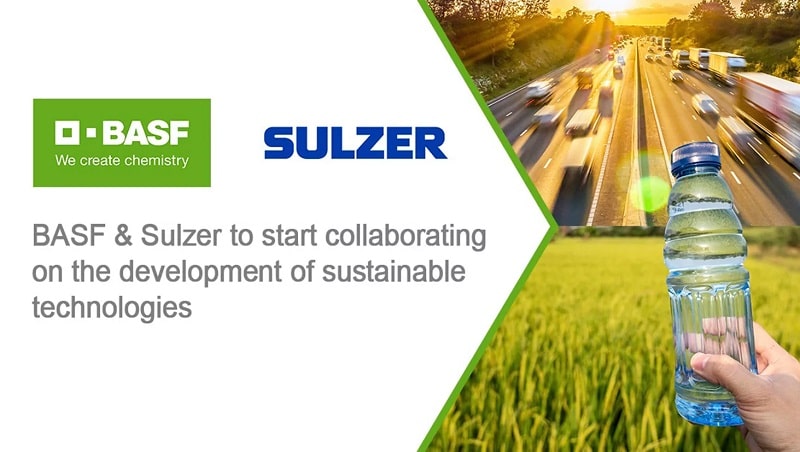
-Azoty stops capro, PA6, nitrogen ferts production on gas pricing
Record natural gas pricing for Poland-based chemicals producer Grupa Azoty has driven the company to halt some caprolactam (capro), polyamide 6 (PA6), and nitrogen fertilizers production, the firm said.
The company is planning to halt production of nitrogen fertilizers, PA6, and capro at its Grupa Azoty SA division – the overall company parent, based in Tarnow, Poland – and reduce production at its Pulawy site in the country.
The temporary shutdowns at its Grupa Azoty SA operations are expected to come into effect from Tuesday (23 August), the company said, driven by “record” natural gas prices.
Azoty estimates that its natural gas pricing has increased from EUR72 per megawatt hour (MWh) on 22 February to EUR276/MWh on 22 August.
Azoty is understood to have already reduced production of melamine, ammonia, and urea in July. Titanium-dioxide – Capro-PA6
The company had not responded to requests for comment on the extent of the production cuts at its Pulawy operations at the time of publication.
Earlier it was reported that Grupa Azoty Zak plans to shut the production of dioctyl terephthalate (DOTP) at its plant in Kedzierzyn (Poland) in the second half of August for repairs. Grupa Azoty intends to close this production facility with a capacity of 65 thousand tons of DOTP per year in Kedzierzyn by the second half of August.
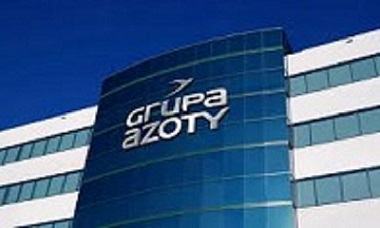
-Riding Thailand’s Green Surge
From miracle textiles to $400 doll houses and the planet’s largest PET resin recycler, investors embrace a BCG economy
When the European textile giant Lenzing was searching for the best place to build the world’s largest production plant for lyocell, an eco-friendly fibre sometimes described in fashion circles as a “miracle fabric”, it zoomed in on Thailand.
Like numerous other foreign investors, Lenzing in part chose the Kingdom for its superb location and connectivity at the heart of Asia. But the Austrian multinational with operations on four continents had another key reason for its decision – Thailand’s commitment to sustainable growth through a model known as the Bio-Circular-Green Economy, or BCG.
The garment industry globally has a huge image problem as an environmental polluter because of its “fast fashion” business model and widespread use of oil-based fibres. Lenzing, by contrast, is recognised as the leading producer of lyocell, a wood-based fibre that’s 100 percent biodegradable and compostable, requires no harmful chemicals and recycles 99.5 percent of solvent used in its production through an innovative circular closed-loop process. Titanium-dioxide – Capro-PA6
By 2024, Lenzing has a global goal to generate 75 percent of its fibre revenues from lyocell and other environmentally friendly fabrics. By 2030, it aims to have reduced its greenhouse gas emissions by 50 percent. At the 304 Industrial Park in Prachinburi, 140 kilometres east of Bangkok, Lenzing found a location that offered green biogenic energy and a sustainable water supply sufficient to operate a factory producing 100 million tonnes of lyocell every year.
It also found a government prepared to offer, through the Thailand Board of Investment (BOI), generous tax breaks and other incentives to companies aligned with its BCG goals.
Construction began in 2019 and, despite the Covid crisis, the €400 million plant opened on time and within budget in March 2022. “Thailand with its commitment to sustainability fitted with our clear long-term vision,” Lenzing Vice President and Senior Project Director Ismail Abdullah said in an interview. “Here we will be able to transform our manufacturing and support our ambitious climate targets. For Lenzing, this project represents a very important step towards a carbon-free future.”
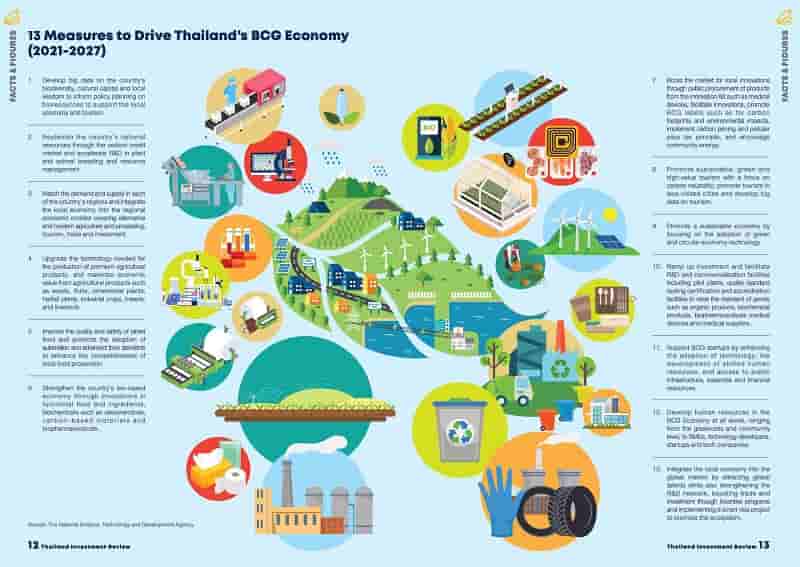
-SCG Chemicals with AJ Plast to produce BOPET in Vietnam
Siam Cement Group (SCG) will invest on a USD22.7m project to produce biaxially oriented polyethylene terephthalate (BOPET) in Vietnam, said the company.
AJ Plast (Vietnam) Co Ltd, a 45:55 joint venture between SCG subsidiary SCG Chemicals and Thailand-listed flexible packaging producer AJ Plast, will carry out the project, SCG said in a bourse filing on 22 August.
The BOPET project is expected to start commercial production in the first half of 2024, SCG said in a statement. The two companies have an ongoing Thai baht (Bt) 700m (USD19m) biaxially oriented polypropylene film (BOPP) project in Vietnam slated for commercialisation in the first half of 2023.
“The BOPP and BOPET projects reaffirm SCGC ongoing strategic investment and commitment in Vietnam, particularly value-added product designed to meet the growing consumer demand by providing raw material to serve the flexible packaging sector,” SCG said. Titanium-dioxide – Capro-PA6
The Thai conglomerate is in the process of completing Vietnam’s first petrochemical complex in the southeastern Ba Ria-Vung Tao province. Called Long Son Petrochemical complex, the USD5.4bn project is now 96% complete, with full start-up expected by the second quarter of next year.
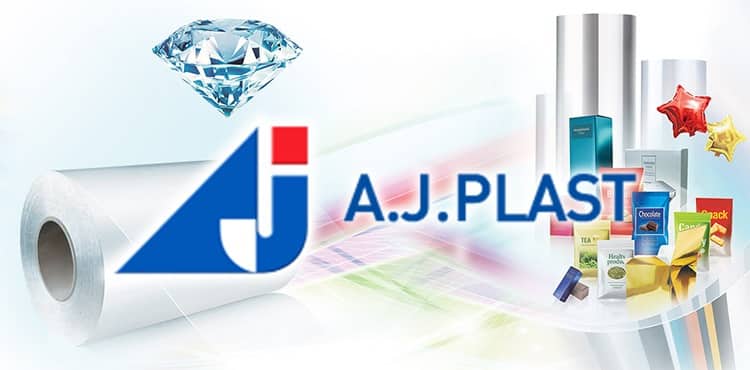
-Dai ichi Life : Impact Investment in JEPLAN, INC.- Contributing Impact Investment in JEPLAN, INC.
– Contributing to a Sustainable Society through PET Chemical Recycling Technologies –
The Dai-ichi Life Insurance Company, Limited (the “Company”; President and Representative Director: Seiji Inagaki) has invested JPY 500 million in JEPLAN, INC. (“JEPLAN”; CEO & Co-FOUNDER: Masaki Takao), a company that uses proprietary recycling technologies to promote the circulation of PET bottles and other resources. This impact investment1 is a part of the Company’s ESG investments.
JEPLAN is a Japanese start-up that aims to use its proprietary chemical recycling BRING Technology™ to achieve horizontal bottle-to-bottle2 recycling of PET bottles, and so promote the circulation of resources. Titanium-dioxide – Capro-PA6
JEPLAN’s proprietary recycling technology chemically depolymerizes and removes the impurities from polyethylene terephthalate, the raw material used to make PET bottles and polyester fibers. The technology enables the production of recycled PET of the same quality as petroleum-derived PET, and allows even dirty PET bottles, which have traditionally proven difficult to recycle horizontally, to be recycled with no loss of quality. Going forward, the company is planning to reduce production costs through low-cost material procurement and increased scales of production.
JEPLAN is the only company in the world to have successfully commercialized a horizontal PET bottle recycling process that utilizes chemical recycling technologies; by expanding the use of its technologies in Japan and overseas, the company expects to contribute both to the growth of environmentally friendly resource circulation, and to the realization of a sustainable society o a Sustainable Society through PET Chemical Recycling Technologies
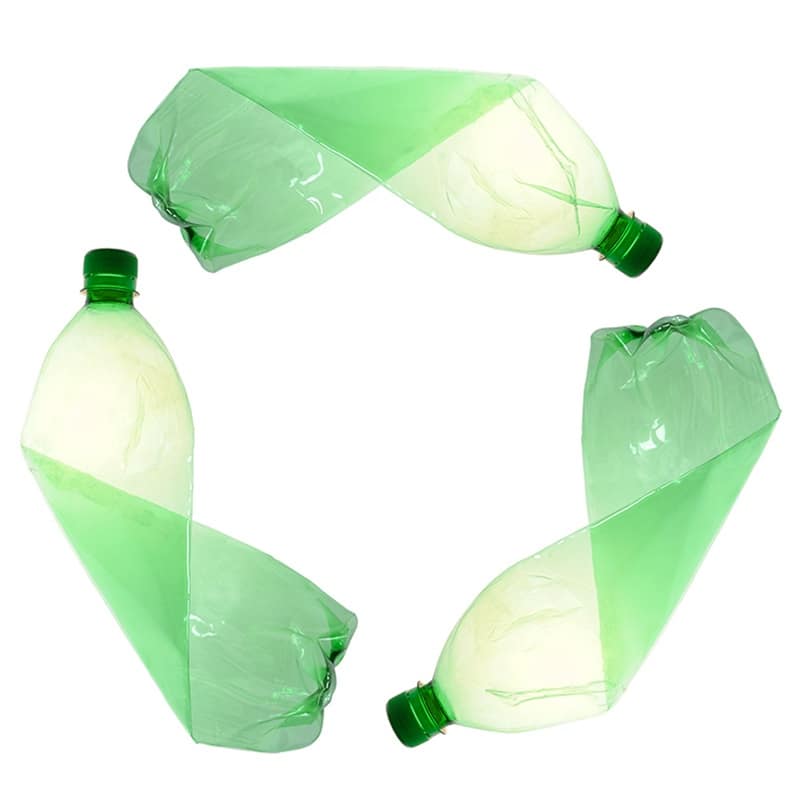
-GreenGroup acquires Lithuanian LDPE recycling company UAB Ecso
European recycling group GreenGroup has acquired Lithuanian low-density polyethylene (LDPE) recycling company UAB Ecso, said Packaging-gateway.
The financial terms of the deal have not been disclosed. Founded in 2009, UAB Ecso claims to be one of Lithuania’s leading polyethylene recyclers, with an annual film waste processing capacity of 20,000t.
The company converts film waste from household and industrial post-consumption into recycled LDPE granules. The acquisition is part of GreenGroup’s mergers and acquisition (M&A) strategy and marks the company’s entry into the polyolefin recycling market.
It is also expected to help the group expand in the LDPE sector across Central and Eastern Europe (CEE). Titanium-dioxide – Capro-PA6
Over the coming years, the company plans to invest between €150m and €200m to strengthen its position as an integrated recycling group in the CEE region.
GreenGroup board chairman Constantin Damov said: “The Lithuanian model proved to be a local success for closed-loop resourcing of plastic waste, aligned with the circular economy objectives. “With this investment, we are positioning the Group as the first line of defence for limiting the environmental impact of single-use plastics – a group fitting both PET and polyolefins. “Our objective is to scale this model in the region and other countries as well.”
Abris Romania partner and head Adrian Stanculescu said: “This latest acquisition consolidates GreenGroup’s recycling activities over the past 20 years and is a decisive step in the Group’s strategy to become a key player in polyolefins recycling in the region.

-Mineral Commodities eyes more heavy mineral sands in Africa
After flying airborne geophysical surveys over its newly granted De Punt exploration area, mining and development company Mineral Commodities sees potential extensions to its Western and Eastern Inland Strandline heavy mineral sands deposits in South Africa. The company is now ready for a 5000m air-core drilling program to test seven major drill targets identified along magnetic anomalies as it looks to table a maiden mineral resource for De Punt by the end of the year.
Two main linear magnetic trends were lit up within De Punt by the latest geophysical surveys with the Western trend stretching 13km long and the Eastern trend totalling an aggregate length of 8km.
The trends appear to be geologically aligned and extend from the strandline deposits that together contribute 212.7 million tonnes of ore to the company’s global resource of 562.2Mt at 6.6 per cent total heavy minerals.
In 2020, drill efforts at the southern boundary of the Western deposit returned significant results including 13m at 51.2 per cent total heavy minerals from 30m downhole and 17m at 45.5 per cent from 29m. Titanium-dioxide – Capro-PA6
The significant southern show alludes to a high potential for the mineralisation to continue into the newly granted and adjoining prospecting area.
Aeromagnetic survey results and anomaly maps demonstrate the high prospectivity of De Punt, which appears to extend the Tormin Western and Eastern Strandline deposits to the south. We aim to report a maiden mineral resource estimate for De Punt by the end of 2022.
Mineral Commodities Managing Director, Jacob Deysel
In July 2020, the company was granted the De Punt prospecting right as an expansion to the southern side of its Tormin heavy mineral sands project about 360km north of Cape Town in South Africa.
The addition of De Punt has the potential to significantly increase Mineral Commodities’ resources beyond the existing inland deposits and allow the company to aggressively ramp up production as planned.
Mineral Commodities aims to grow its processing capacity with the construction of a minerals separation plant that will enable it to produce up to 300,000 tonnes of finished product per annum, significantly increasing the value of Tormin.
Last year the company produced almost 250,000 tonnes of finished product consisting of concentrates of garnet, ilmenite and zircon and rutile. In 2020 the total production was just over 230,000 tonnes.
The company expects plant construction to start next year with the first production in 2024.
Heavy mineral sands deposits are an important source of titanium, most of which is refined into titanium dioxide for use as a white pigment to colour materials such as paper, plastic, rubber and cosmetics. Titanium-dioxide – Capro-PA6
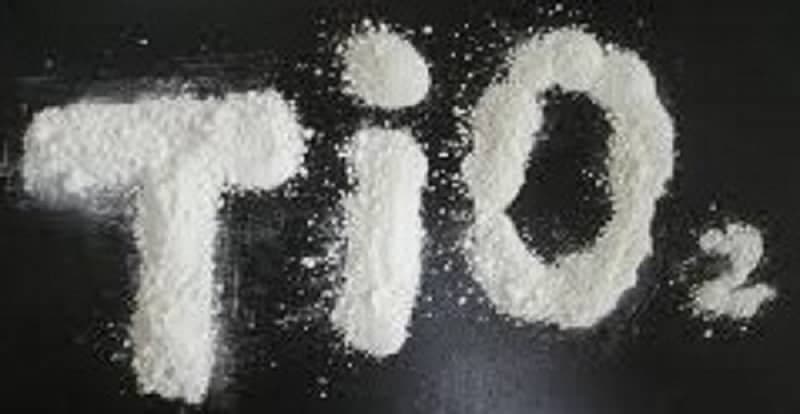
Titanium-dioxide – Capro-PA6
